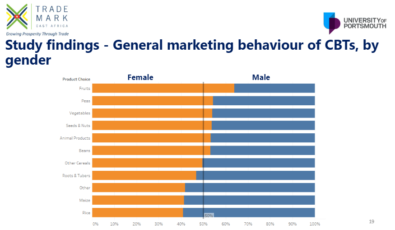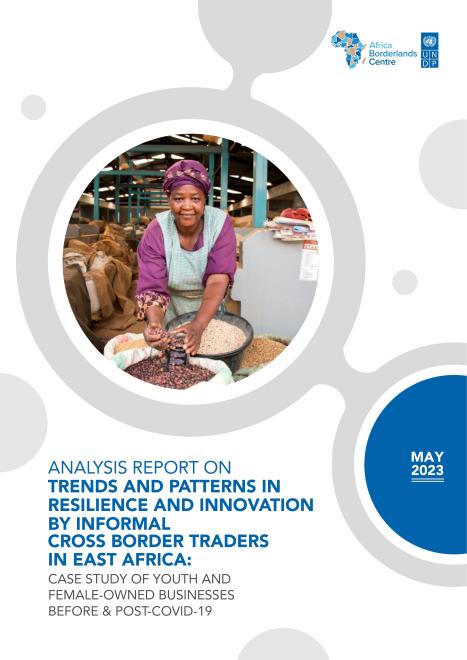Overcoming Data Collection Obstacles for East Africa’s Women Cross-Border Traders: Evidence from Sauti East AfricaResearch Consulting & Sauti Trade Insights
This research proposes an experimental survey methodology for hidden populations, such as cross-border traders (CBTs) in East Africa.
We employ user interaction data from Sauti’s market and trade information platforms to analyze how CBTs prioritize different types of business information and the demographic effects on business information needs.
challenge
Collecting data that reliably maps the behaviour of difficult to sample populations, such as women cross-border traders (CBTs), has typically proven to be a challenging exercise for researchers, policy-makers, and solution designers.
First, sampling frames are difficult to determine due to the uncertain population size of CBTs, let alone women CBTs, and estimates are often contentious given contextual considerations of trader informality, multiple sources of income, and the mobile nature of CBTs. Women, especially, can be difficult to survey as domestic care duties typically tax their time when not working. Additionally, while porous for CBTs, borders can present arbitrary obstacles to data sampling, which, without the same operational fluidity as CBTs, can risk missing critical data. Without an accurate sampling frame, standard probability-based approaches have limited applicability to women’s CBT.
Without reliable discovery research to guide solution-design, project programmers are effectively “going in blind”, which increases the risks of wasted resources and limits project impact.
project
We suggest that CBT’s user interactions with proximate organizations and agencies can be a rich source of data to guide project programmers in the design of their own solutions. To illustrate our method, we empirically model user interactions with Sauti’s Market and Trade Information platform, a mobile-based information platform specifically targeting CBTs in Kenya, Uganda, and Rwanda. We employ the platform’s user interaction data to analyze how CBTs prioritize different types of business information and the demographic effects on business information needs.
results
We presented our results at the Sustainable Inclusive Aid for Trade Symposium, Innovating Past Data Collection Obstacles for East Africa’s Women Cross-Border Traders: Evidence from Sauti East Africa, 19 Sept 2019 – Nairobi Kenya:
First, we identify the relative importance of business information over age, education, and gender dimensions for CBTs.
On marketing behaviour of CBTs, we determine the relative importance of marketplaces and commodities to CBTs, disaggregated by gender. Ultimately, this paper concludes that while women CBTs are a “hard-to-reach” population, the agencies and organizations that they interact with, and the data they produce, are not. When the dynamics of these interactions are the primary unit of analysis for solution designers, organizations and their data cannot be ignored as useful resources for data-driven solution design.




